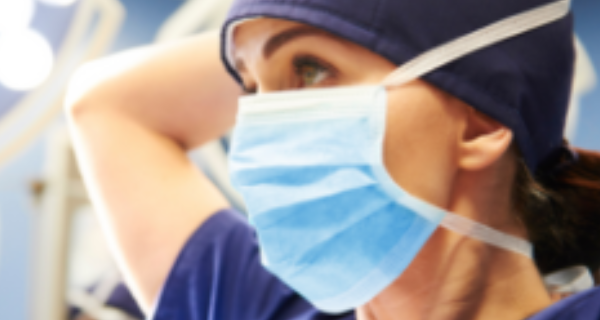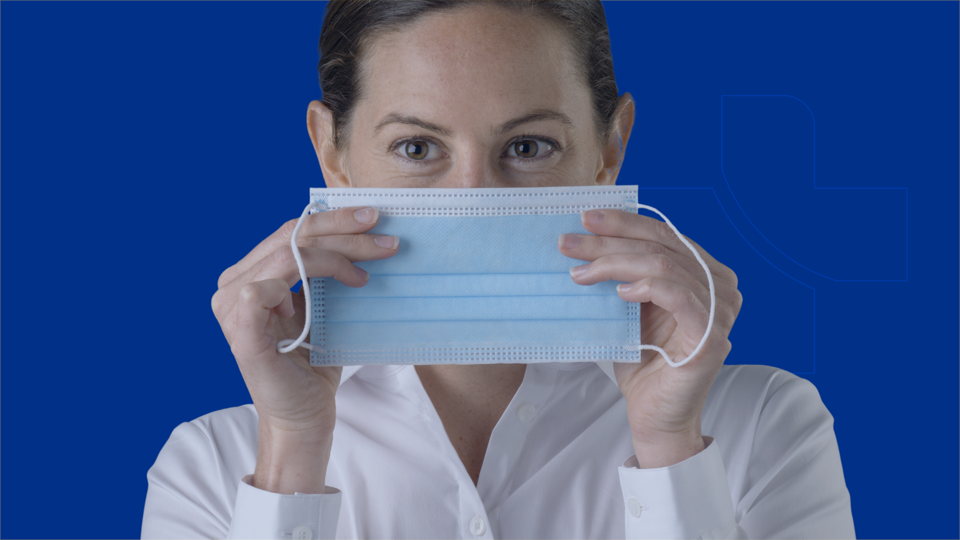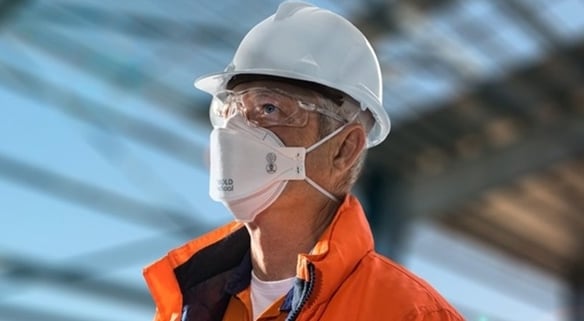Although face masks are not recyclable in a traditional sense, more and more options are becoming available for safe disposal of single-use face masks. Here is how you can incorporate face mask recycling practices into your business and promote the safe disposal of single-use face masks.
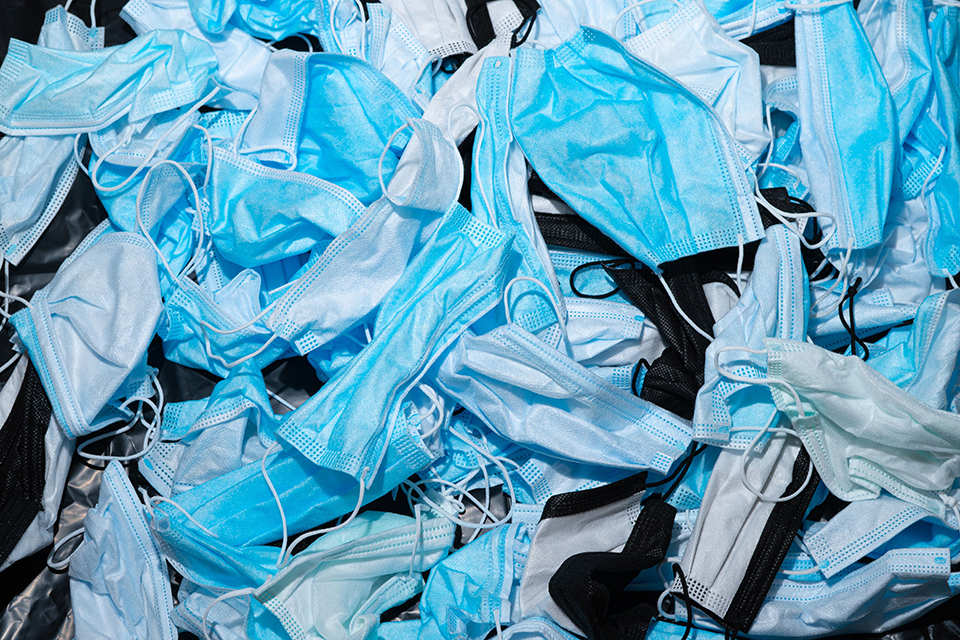
Environmental impact of face masks
Face masks are used in many professional environments including healthcare, aged care, beauty, by dentists, in animal care but also more commonly since the mask mandates during the COVID-19 pandemic. There is no denying that the consumption of single-use face masks is causing a number of environmental challenges.
One of the main issues with disposable face masks is that they are made from plastics, including polypropylene polymers, polyester, polycarbonate, or polyethylene.
These plastics can take between 400 to 450 years to break down in the environment. When they eventually disintegrate, they break down into smaller plastic particles, leading to microplastic pollution. A single disposable face mask releases around 1.5 million microplastic particles as it breaks down. When you multiply this with the millions of face masks that are disposed of globally each and every day, the number of potential microplastics from face masks alone is sure to have catastrophic environmental consequences. These microscopic plastic particles can enter water bodies and ecosystems, posing potential harm to wildlife and marine life.
Most masks end up in landfill, but even incineration, which is generally thought to eliminate plastic waste, can leave unburned material containing synthetic fibers that will return into the environment.
As single-use face masks break down, they often release harmful chemicals into the surrounding environment. Many face masks end up in waterways where they release heavy metals and other damaging pollutants when submerged in water.
How to recycle used face masks
While the incorrect disposal of single-use face masks can pose a number of environmental impacts, there are steps you can take to promote sustainable practices to minimise their impact.
Face mask recycling programs
Although face masks cannot be disposed of in household recycling, there are several specific face mask recycling programs that you can participate in to benefit yourself, your business and the wider community.
TerraCycle has developed a Zero Waste Box™ specifically for disposing face masks. You can use this box to safely recycle non-woven disposable plastic-based face masks including 3-ply surgical, dust masks, KN95 and N95 masks. With that said, these boxes will not accept medical waste, like material contaminated with blood or bodily fluids that originate from healthcare facilities, hospitals, physicians' offices, dental offices, blood banks, veterinary clinics, research laboratories, etc.
Everything collected by the Zero Waste Box system is sorted and processed into raw materials to be reused, rather than ending up in landfills. For example, plastics are separated by number, melted down, and turned into pellets that can be moulded and extruded to produce new products. The metal nose pieces are separated by type and smelted into ingots for reuse.
Construction materials
There have been some instances where disposable face masks have been recycled to create construction materials, like concrete, roads, and pavement bases.
Researchers at RMIT University have developed road-making material from a mix of shredded single-use face masks and processed building rubble. The addition of face masks to processed building rubble helps to add stiffness and strength to the final product, and it also meets civil engineering safety standards. This new material is ideal for use in the first three base layers of roads and pavements.
RMIT researchers have also investigated the use of recycled face masks as an aggregate material for making concrete in civil construction projects. The preliminary findings suggest promising results.
Correct disposal of face masks
With not many of us having access to a face mask recycling program, it is still important to ensure you encourage staff to safely and correctly dispose of single-use face masks and respirators. Used face masks should be placed in the general waste bin, so it could be worth setting up a dedicated face mask disposal bin.
Provide clear instructions that detail the correct procedure for safely removing a face mask to ensure your staff follow the right steps. This includes:
- Avoiding touching the front of the face mask,
- Removing the mask using the ear loops or straps, and
- Cutting the ear loops/straps before placing the mask in the general waste bin if it is safe and reasonable to do.
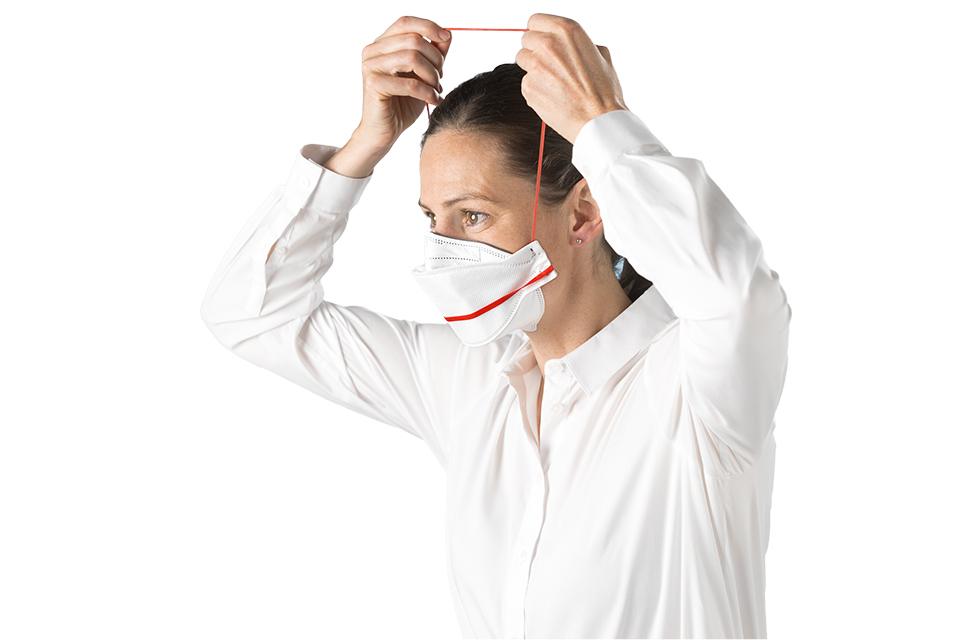
It is also important to highlight the importance of hand hygiene before and after handling a face mask. Be sure to provide a space where staff can wash their hands with soap or provide an alcohol-based hand sanitizer, that is made up of over 60% alcohol or 70% isopropanol near the face mask disposal bin.
Sustainable solutions with Detmold Medical
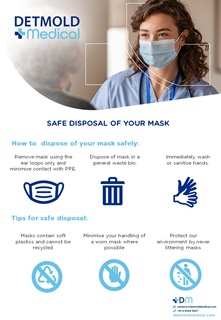
At Detmold Medical, we are taking active steps to make our operations more sustainable. This includes keeping waste out of landfill by collecting it for recycling. We are also committed to pursuing continuous improvement in terms of our material selection, supply chain, product designs and manufacturing processes.
Explore our range of high-quality face masks and respirators or shop online today to support an Australian-owned business.


